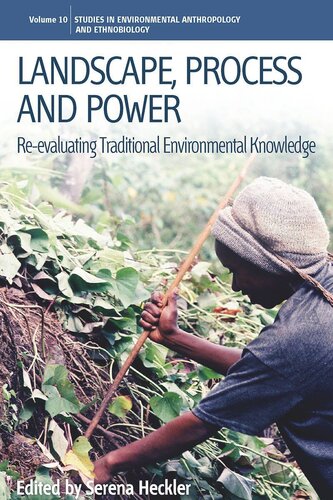

Most ebook files are in PDF format, so you can easily read them using various software such as Foxit Reader or directly on the Google Chrome browser.
Some ebook files are released by publishers in other formats such as .awz, .mobi, .epub, .fb2, etc. You may need to install specific software to read these formats on mobile/PC, such as Calibre.
Please read the tutorial at this link: https://ebookbell.com/faq
We offer FREE conversion to the popular formats you request; however, this may take some time. Therefore, right after payment, please email us, and we will try to provide the service as quickly as possible.
For some exceptional file formats or broken links (if any), please refrain from opening any disputes. Instead, email us first, and we will try to assist within a maximum of 6 hours.
EbookBell Team

4.7
96 reviewsIn recent years, the field of study variously called local, indigenous or traditional environmental knowledge (TEK) has experienced a crisis brought about by the questioning of some of its basic assumptions. This has included reassessing notions that scientific methods can accurately elicit and describe TEK or that incorporating it into development projects will improve the physical, social or economic well-being of marginalized peoples. The contributors to this volume argue that to accurately and appropriately describe TEK, the historical and political forces that have shaped it, as well as people’s day-to-day engagement with the landscape around them must be taken into account. TEK thus emerges, not as an easily translatable tool for development experts, but as a rich and complex element of contemporary lives that should be defined and managed by indigenous and local peoples themselves.